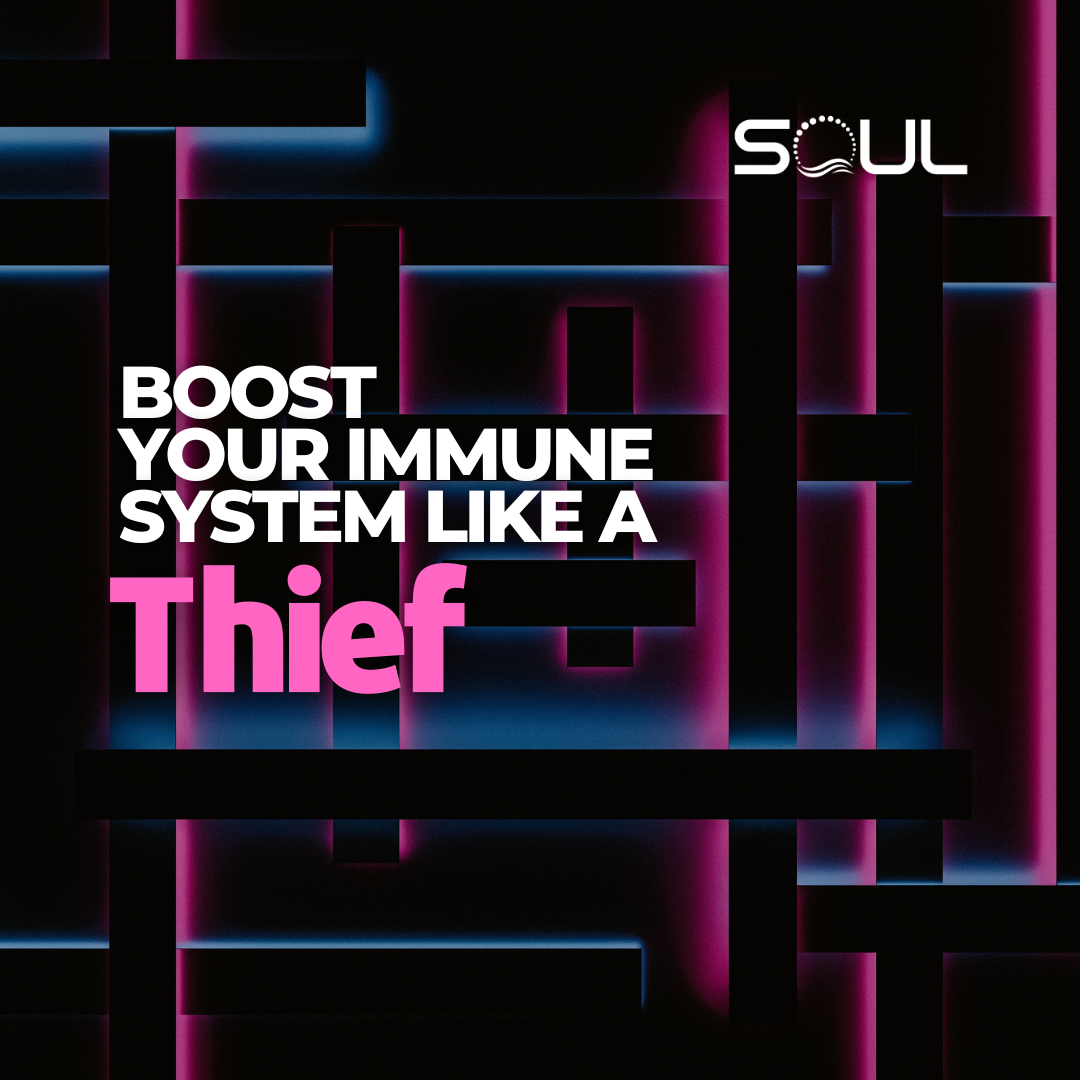
The Legend Behind Thieves Essential Oil: Rediscovering Nature’s Defense
Share
Every compelling story has its roots in a powerful legend. Thieves essential oil isn’t just another concoction in the realm of aromatherapy; it’s a blend that traces its origins to a fable as old as human curiosity and desperation. The legend speaks of four thieves who, amidst the unrelenting gloom of the bubonic plague, roamed the disease-ridden streets, looting the afflicted without ever falling victim to the dreaded disease. Their secret? A potent mixture of herbs and spices, mirroring today’s Thieves blend of clove, cinnamon bark, rosemary, lemon, and eucalyptus oils.
But legends are just that—tales passed through generations. The real question is: what makes Thieves essential oil worth the chatter? Does it truly wield antimicrobial prowess, immune-boosting capabilities, and versatile cleaning benefits? Let’s explore.
Antimicrobial: Nature’s Answer to Pathogens
The Thieves blend is often heralded for its antimicrobial properties, but what does that truly mean? In essence, antimicrobial agents inhibit or outright eliminate harmful microorganisms like bacteria, viruses, and fungi. Thieves oil’s cocktail includes heavy hitters like eucalyptol and cinnamaldehyde, both of which pack a microbial punch.
A study in the Journal of Applied Microbiology found that Thieves essential oil was not just folklore—it demonstrated efficacy against bacterial strains like Escherichia coli, Pseudomonas aeruginosa, and Staphylococcus aureus. Let’s dissect this mechanistically: eucalyptol disrupts the lipid membranes of bacteria, rendering them vulnerable, while cinnamaldehyde acts as a destabilizing agent, shaking up the pathogen’s internal equilibrium. However, while these findings are promising, clinical applications require a closer examination. The reality is, science often lags behind folklore—but where tradition meets science, opportunity lies.
Immune-Boosting: Harnessing Nature’s Antioxidants
Much of the belief in Thieves essential oil’s immune-boosting properties hinges on its antioxidant capacity. Free radicals, those highly reactive molecules, act like microscopic wrecking balls within our cells, leading to oxidative stress. The essential oils in Thieves, particularly clove, are known to be rich in antioxidants, which counteract these free radicals. A study in the Journal of Medicinal Food demonstrated that clove oil stimulated immune responses in rats. But what about humans?
Here’s where the conjecture kicks in: clove oil contains eugenol, a compound that not only acts as an antioxidant but may also stimulate macrophage activity—a key player in immune defense. Picture your immune system as a well-oiled machine: antioxidants like eugenol help grease the gears, allowing the machine to function at peak efficiency.
Cleaning: A Natural Alternative to Toxic Formulas
Now, let’s dive into Thieves oil as a natural cleaning powerhouse. Traditional cleaning agents often rely on synthetic chemicals—harsh on surfaces and perhaps harsher on our health. Thieves essential oil offers a natural alternative, leveraging its antimicrobial properties to target the grime and germs that conventional cleaners aim at. And the aroma? It’s like swapping the sharp scent of bleach for a warm, inviting hug of cinnamon and lemon.
When added to water, vinegar, or diluted in natural soaps, Thieves oil forms a potent, non-toxic cleaner. Mechanistically speaking, the essential oils in the blend disrupt microbial cell membranes, much like conventional disinfectants but with the added benefit of being free from harsh chemicals. It’s no wonder then that many have adopted this blend for homemade air fresheners and disinfectant sprays.
Beyond Cleaning: An All-Purpose Marvel?
The potential applications of Thieves oil don’t end with cleaning. Anecdotal reports suggest its utility extends to pain relief and even as a natural insect repellent. Clove oil, for example, has been traditionally used for toothaches due to its numbing properties—a natural, botanical analgesic if you will. Eucalyptus oil, on the other hand, is often touted as a mosquito repellent, thanks to its pungent aroma and insect-deterring properties.
That said, it’s essential to tread carefully. While the anecdotal benefits are intriguing, the scientific evidence is still evolving. Think of it as navigating a winding road with promising signposts—exciting, but with the awareness that not every trail leads where we hope.
How to Use Thieves Essential Oil: The Art of Balance
Whether you’re diffusing it to purify the air, diluting it for a soothing massage blend, or adding it to a cleaning solution, Thieves essential oil is a versatile tool. However, essential oils are concentrated botanical extracts—strong enough to be a gift and a hazard simultaneously. It’s crucial to dilute them properly with carrier oils like coconut or jojoba oil to avoid skin irritation.
Diffusing Thieves essential oil in an essential oil diffuser offers a dual benefit: creating a pleasant atmosphere while potentially neutralizing airborne pathogens. The ritual of diffusing itself can offer a moment of solace—an act of aligning oneself with nature’s harmony.
A Conclusion in the Spirit of Curiosity
Thieves essential oil isn’t merely a relic of a centuries-old legend; it’s a modern exploration of how ancient wisdom can intersect with contemporary science. The components of this blend—clove, cinnamon, rosemary, lemon, and eucalyptus—each have their tale to tell, from eugenol’s antioxidant prowess to cinnamaldehyde’s microbial takedown. While research is still unraveling the full narrative, one thing is clear: Thieves essential oil is more than an old wives’ tale.
But remember, the best legends inspire curiosity, not blind belief. Approach Thieves essential oil with a sense of wonder and a commitment to informed use. The journey of discovering what nature’s arsenal offers is ongoing—and perhaps, just perhaps, there’s more truth to these tales than we first thought.
These statements have not been evaluated by the Food and Drug Administration. This product is not intended to diagnose, treat, cure or prevent any disease. This article is for informational purposes only and is not a substitute for professional medical advice. Always consult your healthcare provider regarding any health concerns or before starting new supplements.
